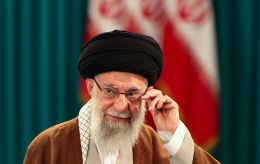European drone wall cracked before first UAV was even shot down, says Politico
 Photo: European Commission President Ursula von der Leyen (Getty Images)
Photo: European Commission President Ursula von der Leyen (Getty Images)
The European Commission’s initiative to create a so-called drone wall to protect the EU’s eastern flank has received political backing but has also faced criticism over its feasibility, cost, and the project’s name, Politico reports.
Commission President Ursula von der Leyen presented the plan in response to the growing threat, as Russian drones have already crossed into Poland and Romania, while suspicious drones have been tracked over Denmark, Norway, and Germany.
The Commission proposes creating a shield of radars and interceptor missiles. The Baltic states and Poland welcome the initiative as a necessary measure. However, countries further from Russia question its practicality and financial logic.
French President Emmanuel Macron warned that "there is no perfect wall for Europe," given the roughly 3,000-kilometer border.
On the other hand, EU Commissioner for Defense Andrius Kubilius, a former Lithuanian Prime Minister, estimates the initial plan at around €1 billion and says detection capabilities could be established in less than a year. He also noted that the term "wall" could be misleading.
Some countries fear the project could become a tool for centralizing defense decisions in Brussels.
Italy and Greece have called for European funds to benefit the entire bloc, not just its eastern flank.
Finnish Prime Minister Petteri Orpo emphasized the need for solidarity with countries bordering Russia and Ukraine.
German Chancellor Friedrich Merz, according to diplomats, criticized the plan sharply, highlighting existing disagreements at the leaders’ meeting in Copenhagen.
Journalists note experts’ views that countering drones is important but far from a panacea.
MEP Hannah Neumann said that "a drone wall won’t protect us from cyberattacks" and will not solve issues with air defense, ammunition production, or decision-making structures.
Despite the debates, EU leaders in Copenhagen approved the Commission’s proposals to strengthen anti-drone capabilities, meaning the project is likely to move forward in some form.
However, details regarding timing, funding, and technical capabilities remain unclear, leaving the drone wall project already in question.

